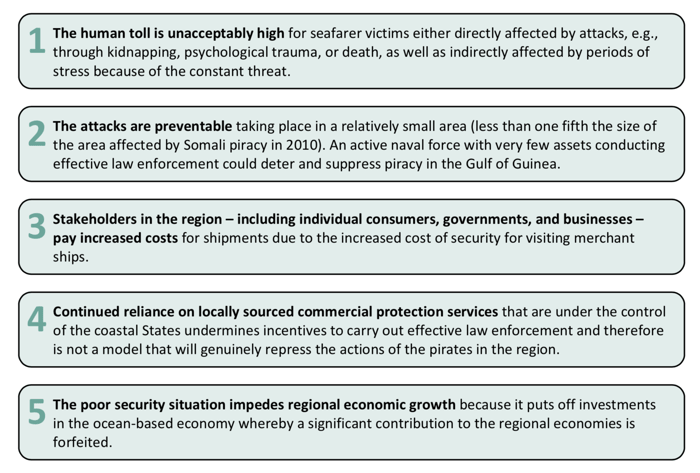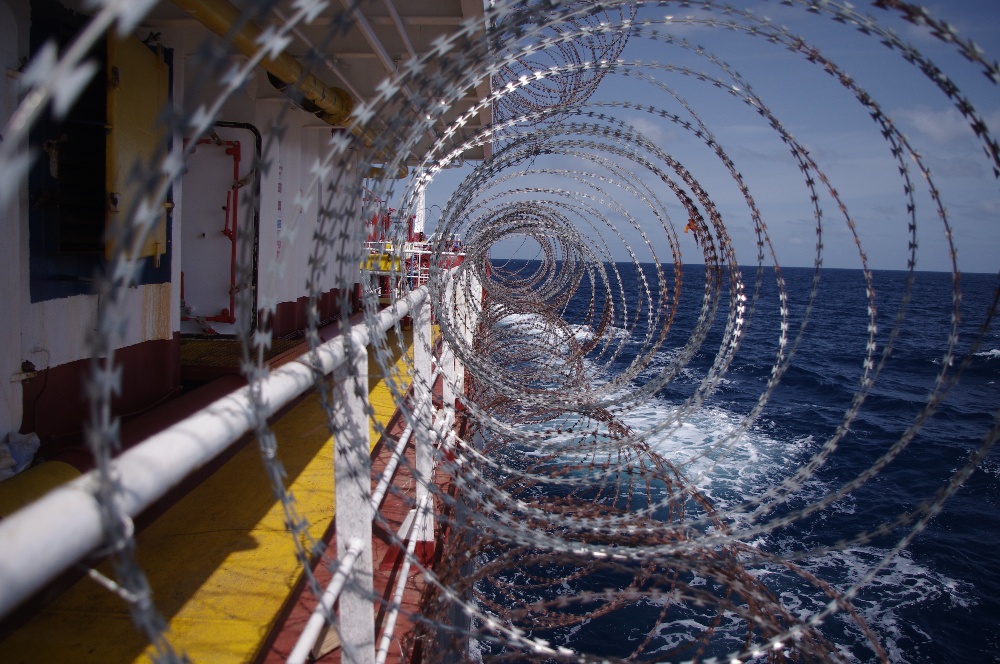Dryad Global are proud to join the world’s leading companies and associations in the shipping industry to sign BIMCO's Gulf of Guinea Declaration on the Suppression of Piracy.

What's the Declaration all about?
Every person deserves to be safe while carrying out their work, and to be able to return to their homes without being victims of violent crime. Seafarers deserve no less.
The piracy problem in the Gulf of Guinea has developed into a curse for seafarers over the past decade. In 2021, the threat that looms for all seafarers going to the region is being kidnapped at gunpoint for ransom. While overall numbers of pirate attacks are largely unchanged, the violence, scope, and sophistication of the attacks on shipping has continued to increase and today take place across an area of more than 200 nautical miles from the pirate bases that are principally located within the Niger Delta.
The situation is unacceptable for five reasons:

We're stronger together. Find out how your company can become a signatory too:

What does the Declaration ask of its signatories?
We, the signatories to the Gulf of Guinea Declaration on Suppression of Piracy, demand that no seafarer should face the grave risks of kidnapping and violence when transporting cargo, supporting the offshore sector, or fishing in the Gulf of Guinea.
We recognise the important steps taken and positive initiatives underway by coastal States in the region. We call on all stakeholders e.g., coastal and flag States, shipowners, charterers, maritime organisations, importers and exporters, oil, and mining companies, offshore operators, fishers, supranational organisations, labour unions and NGOs, to sign this pledge and join together in a coalition to end the threat of piracy in the Gulf of Guinea through:
- Tangibly supporting antipiracy law enforcement (as mandated by international law including international treaties, e.g. the United Nations Convention on the Law of the Sea) by non-regional naval forces providing a capable incident response capability to complement regional coastal States’ antipiracy law enforcement operations;
- Enhancing regional capacity building with priority given to those coastal States which demonstrate the will to participate actively in law enforcement at sea;
- Encouraging non-regional navies to work actively together with each other and the Gulf of Guinea coastal States’ antipiracy law enforcement forces and agencies to supress the pirate threat;
- Supporting the deployment of law enforcement staff from regional coastal States on non-regional navy ships for capacity building purposes and to assist in the arrest and prosecution of pirates;
- Facilitating the implementation of effective shipboard defensive measures within the region, including via the BMP West Africa guidance and through other onboard active and passive protective measures;
- Improving domain awareness (e.g., via radars on offshore platforms) and sharing of relevant information between antipiracy law enforcement forces and agencies;
- Increasing effective law enforcement activity ashore to disrupt the underlying criminal enterprises where they are based;
- Providing prison facilities for arrested pirates (ideally in the region), and encouraging coastal States in the Gulf of Guinea to actively prosecute;
- Working towards improving the transparency between law enforcement agencies, military forces, and protection services; and
- Actively conveying the messages above to relevant stakeholders.
- We firmly believe that piracy and attempts at kidnapping are preventable; as a minimum we need to see, by the end of 2023, that:
- The number of attacks by pirates should be reduced from current levels by at least 80%; and No seafarers should have been kidnapped from a ship in the preceding 12-month period.

Source: Leadership Nigeria








